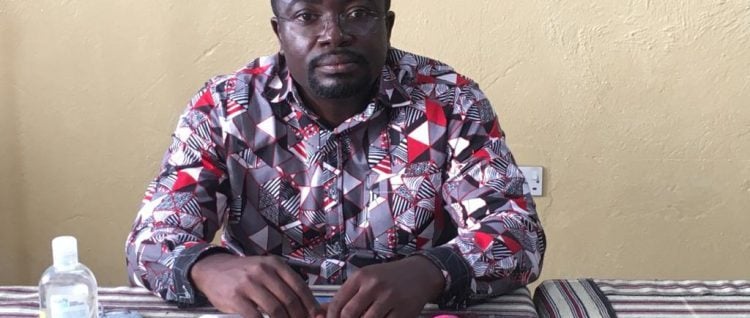The escalating violence in Nkwanta township has cast a long shadow over the region, jeopardizing the safety of healthcare workers and threatening the accessibility of essential medical services. The Oti Regional Health Directorate has issued a stark warning: if attacks on healthcare personnel continue unabated, the closure of healthcare facilities becomes an imminent possibility. This escalating crisis has already claimed the life of one health worker and left others injured, painting a grim picture of the dangers faced by those on the frontlines of care. The attacks, indiscriminate in their nature, have targeted government institutions, including the Kyabobo National Wildlife Park, the Police FPU, and vehicles belonging to the Municipal Health Directorate. This widespread violence has created an environment of fear and uncertainty, leaving healthcare workers apprehensive about their safety and seeking refuge wherever possible. However, even in hiding, they remain vulnerable to threats, highlighting the pervasive nature of the insecurity.
The Oti Regional Health Director of Services, Dr. Osei Kuffour Afreh, has emphasized the non-negotiable nature of healthcare worker safety. He has issued an urgent appeal to all parties involved in the conflict, imploring them to prioritize peace and stability above all else. The ongoing violence not only endangers the lives of healthcare workers but also disrupts the delivery of essential medical services to the community, creating a humanitarian crisis of significant proportions. Healthcare providers are currently struggling to manage the influx of injured patients while simultaneously grappling with their own safety concerns. This dual burden places immense strain on the healthcare system, threatening its ability to function effectively.
The situation has reached a critical juncture, and the Health Directorate is actively exploring all available avenues to maintain healthcare services amidst the escalating violence. However, the stark reality remains that if the conflict continues to intensify, the Directorate may be compelled to close some of its facilities as a last resort to safeguard the lives of its staff and patients. This potential closure would have far-reaching consequences for the community, limiting access to vital healthcare services and exacerbating the already precarious health situation. The decision to close facilities would not be taken lightly, but the safety of healthcare workers and patients remains paramount.
The attacks on healthcare workers and facilities represent a grave violation of international humanitarian law and principles. Healthcare personnel, by virtue of their profession, are dedicated to saving lives and alleviating suffering. Targeting them undermines the very foundations of healthcare delivery and jeopardizes the well-being of entire communities. The international community must condemn these attacks in the strongest possible terms and call for accountability for those responsible.
The ongoing conflict in Nkwanta township demands immediate attention and a concerted effort from all stakeholders to de-escalate the violence and ensure the safety of healthcare workers. Dialogue, mediation, and peacebuilding initiatives are crucial to resolving the underlying issues driving the conflict and fostering a climate of stability and security. The provision of healthcare is a fundamental human right, and all parties must respect and protect the neutrality of healthcare facilities and personnel.
Ultimately, the resolution of the conflict in Nkwanta township requires a multi-faceted approach that addresses the root causes of the violence, promotes dialogue and reconciliation, and ensures the protection of healthcare workers and the continuity of essential medical services. The international community, regional organizations, and the Ghanaian government must collaborate to support these efforts and create a sustainable path towards peace and stability. The lives and well-being of the people of Nkwanta depend on it.














